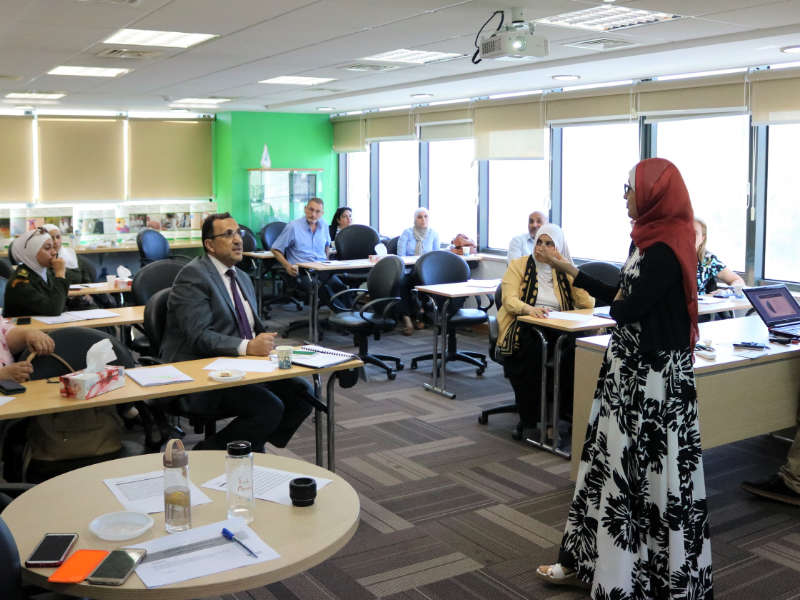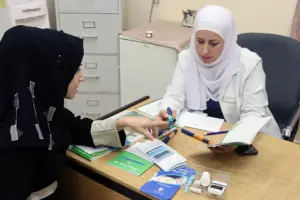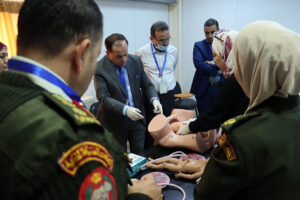Abeer, a Lab Technician, works at the mother and child section of the Al Husun Health Center in Irbid, northern Jordan. The facility is supported by the USAID Health Services Quality Accelerator Activity. Photo credit: URC
Jordan
Jordan is well known in the region for its vibrant economy, strong government, and engaged civil society. The country has made significant investments to strengthen its health system and improve the health and health care of its population. Maternal deaths have declined by 50% since 2002, and there is close to universal access to antenatal care and skilled birth attendants at delivery.

However, Jordan’s high population growth threatens its long-term sustainable development. There is a large unmet need for family planning awareness, availability, and uptake, and progress is still needed to reduce infant and child mortality. Uptake of childhood immunizations has declined, as have live births at health centers – exacerbated by the impact of COVID-19.
More broadly, gender equity continues to be a priority for Jordan, including the goal of increasing women’s participation in the work force and promoting women’s rights and voices through society to improve health. The Government of Jordan’s health strategy emphasizes quality, equity, private sector engagement, and accountability. An opportunity exists to improve quality of and access to health services in support of a stronger health system.
URC’s quality improvement projects in Jordan began through the USAID Quality Assurance Projects I, II, and III, which raised early awareness of quality improvement as an essential element of health systems strengthening. This work continued under the Partnerships for Health Reform and Partners for Health Reformplus projects which supported improvements in Jordan’s health policy, management, financing, and health services delivery.
As part of the Jordan Healthcare Accreditation Project (JHAP), URC provided technical assistance to improve the quality and safety of facility-based service delivery. JHAP helped to establish and build the capacity of the Health Care Accreditation Council (HCAC) – responsible for improving the quality of care through accreditation and capacity building. The HCAC is now the leading quality improvement institution in Jordan dedicated to improving health sector performance and patient safety through quality improvement.
From 2016 to 2019, the USAID Human Resources for Health 2030 (HRH2030) Project implemented its first field-based activity supporting Jordan’s Ministry of Health (MOH) to enhance its human resources practices, facility management, and leadership.
Current Projects
In 2021 URC began leading the five-year USAID Health Services Quality Accelerator Activity in Jordan, which is engaging health system stakeholders to accelerate and sustain improvements in equitable reproductive, maternal, newborn, and child health outcomes. The Activity works to strengthen Jordan’s MOH leadership and governance capacity to improve quality of care. The Activity team is helping local stakeholders adapt and lead innovative models in response to the evolving epidemiological and sociopolitical context. At the governorate level, our technical support is tailored to leverage health system strengths and address areas of weak performance.


